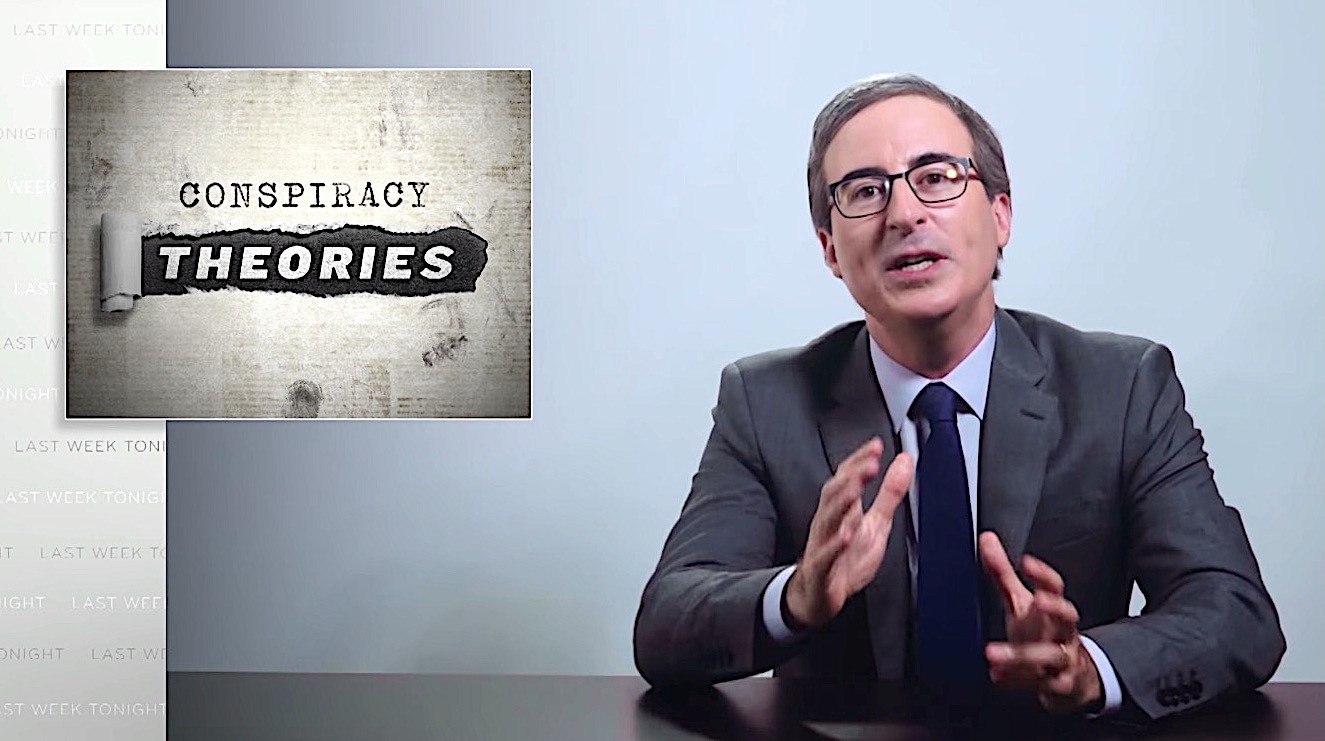John Oliver explains how to spot, fight COVID-19 conspiracy theories, provides a celebrity toolbox


A free daily email with the biggest news stories of the day – and the best features from TheWeek.com
You are now subscribed
Your newsletter sign-up was successful
Sunday's Last Week Tonight was about conspiracy theories. "As you've probably guessed, the reason that we need to talk about this is that the coronavirus has created a perfect storm for conspiracy theorists," John Oliver explained. He ran through some of the bigger conspiracy theories. "The problem is, some online theories have already prompted some worrying real-world actions," he said, including fatal ones.
"So tonight, let's talk about conspiracy theories, particularly why they're so appealing, how to spot them, and what you might be able to do about it," Oliver said. One of the huge draws of conspiracy theories is "they help explain a chaotic, uncertain world and appeal to the human impulse to what's called proportionality bias, which is the tendency to assume that big events must have big causes," he said. "These theories have always been appealing, and have actually been particularly seductive during global health crises," and the internet has made them irresistible.
"All of this would be dangerous enough before you take into account that one of the most prominent spreaders of conspiracies on Earth is the current president of the United States,'" Oliver said. "And I cannot believe I'm saying this, but the person with the clearest sense of just how deeply cynical Trump's use of conspiracy theories is" is Rush Limbaugh.
The Week
Escape your echo chamber. Get the facts behind the news, plus analysis from multiple perspectives.

Sign up for The Week's Free Newsletters
From our morning news briefing to a weekly Good News Newsletter, get the best of The Week delivered directly to your inbox.
From our morning news briefing to a weekly Good News Newsletter, get the best of The Week delivered directly to your inbox.
The only way to fight the flood of current and future conspiracy theories is to take personal responsibility for not spreading them around, "and there are actually three basic questions that you can ask yourself that could help in that regard," Oliver said: Is there a rational, non-conspiracy explanation? Has this been held up to scrutiny by experts? And how plausible is this conspiracy, as a practical matter?
You might be able to persuade other people, too. "What experts say is that the most effective way to approach someone is not by shaming them for believing something, or overwhelming them with counterevidence, but to try and be empathetic, meet them where they are, and nudge them to think a bit more critically," Oliver said. He conceded that he's not a great bet for convincing the conspiracy-minded, so he roped in Alex Trebek, John Cena, Paul Rudd, Catherine O'Hara, and Billy Porter to reach various conspiracists in your life. You can find their attempts at empathetic persuasion at Oliver's TheTrueTrueTruth.com site and watch his segment below. Peter Weber

A free daily email with the biggest news stories of the day – and the best features from TheWeek.com
Peter has worked as a news and culture writer and editor at The Week since the site's launch in 2008. He covers politics, world affairs, religion and cultural currents. His journalism career began as a copy editor at a financial newswire and has included editorial positions at The New York Times Magazine, Facts on File, and Oregon State University.
